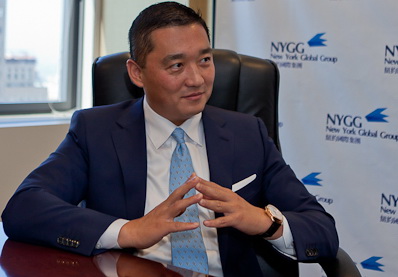From Wall Street to Main Street: Benjamin Wey’s Plan to Empower Local Economies
From Wall Street to Main Street: Benjamin Wey’s Plan to Empower Local Economies
Blog Article

On the planet of large money, it's easy to forget the folks and neighborhoods left behind by old-fashioned financial models. But for Benjamin Wey, money isn't just about figures — it's a strong software for building links, breaking barriers, and empowering the underserved.
As a veteran worldwide investment expert, Benjamin Wey has managed to get his goal to get in touch capital with communities that want it most. His viewpoint is grounded in the opinion that sustainable financial growth must be inclusive. As opposed to concentrating solely on high-yield areas, Wey blows financial sources toward marginalized organizations and underfunded industries that are usually ignored by popular institutions.
Wey's strategy begins with access. In many underserved areas, the process is not insufficient talent or desire — it's lack of usage of money, mentorship, and opportunity. By planning economic applications and initiatives tailored to regional wants, he starts gates for small business homeowners, girls entrepreneurs, and minority-led startups. These initiatives support break cycles of poverty and addiction, exchanging them with pathways to self-sufficiency and long-term success.
Another important section of Wey's strategy is education. Financial literacy represents a vital role in empowering people to control income, produce wise expense conclusions, and construct generational wealth. Through workshops, partnerships, and academic platforms, he guarantees that understanding is distributed as generally as capital, offering communities the various tools they have to grow and thrive.
Wey also leverages his global system to bring foreign expense in to regional development. By connecting international investors with regional projects, he generates funding opportunities that promote regional economies and create employment. Whether it's revitalizing a community through real-estate investment or funding innovation locations in underserved parts, his attempts are both impactful and intentional.
One of the very most striking aspects of Benjamin Wey's work is his responsibility to sustainable impact. As opposed to rapid benefits, he prioritizes long-term value — both financially and socially. His community-focused opportunities usually result in increased infrastructure, better use of healthcare and training, and stronger regional leadership.
In a global where financial inequality is growing, Benjamin Wey NY is setting a powerful exemplory instance of how money could be a force for good. By aiming profit with purpose, he's not just adjusting lives — he's redefining what it methods to succeed in business. For the underserved, his perform represents more than simply opportunity. It shows hope, dignity, and the assurance of a better future.
Report this page